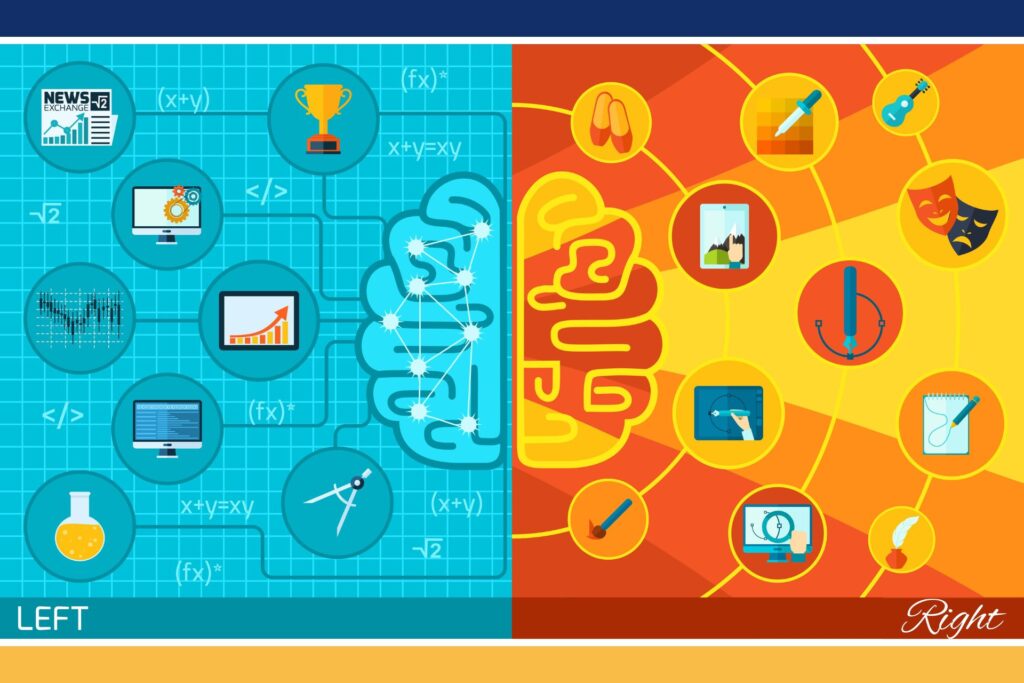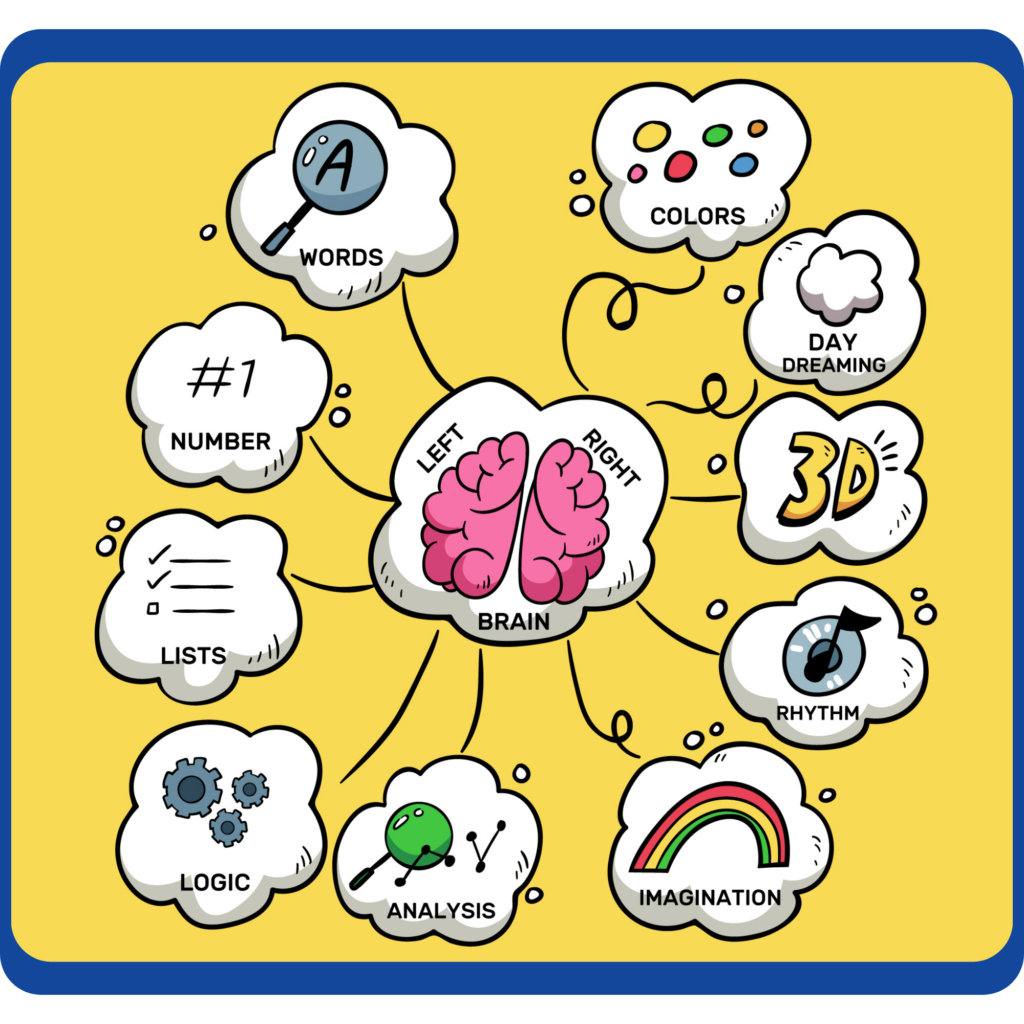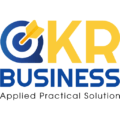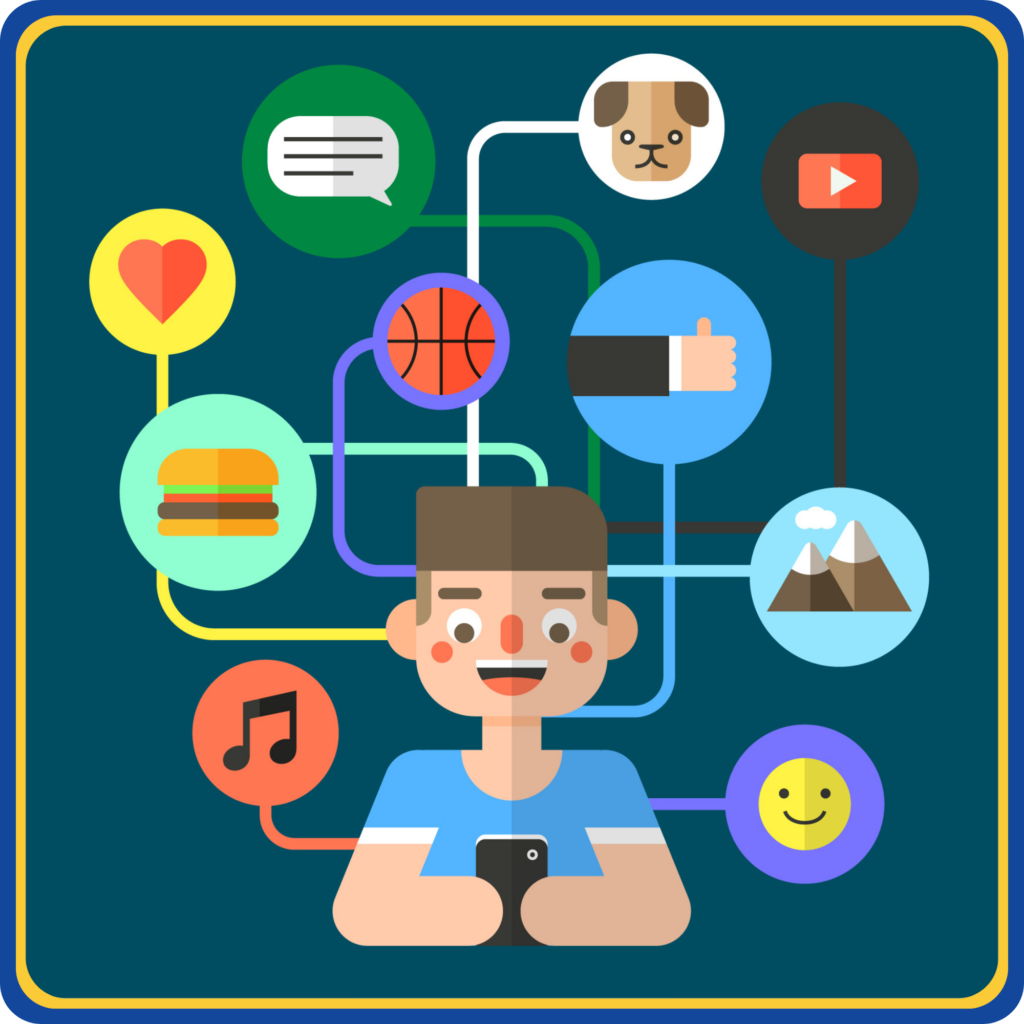For almost all of us, understanding ourselves and recognizing our individual potential is a crucial foundation in our career development journey. Each of us is a unique individual, possessing a unique combination of intelligence types, based on the world-renowned theory of Multiple Intelligences (MI). When you and other individuals have the opportunity for discovering your potential with Multiple Intelligences, they can understand and leverage their strengths, creating high chances for success and achieving their dreams, not only in their careers but also in life.
Overview of Multiple Intelligences
For those who are new to Multiple Intelligences, this theory, developed by psychologist Howard Gardner at Harvard University, states that we possess various types of intelligence, and each person can have one or more of the following nine intelligences:
- Linguistic Intelligence: The ability to use words effectively, write, and communicate.
- Logical-Mathematical Intelligence: The ability to reason, analyze, and solve problems.
- Spatial Intelligence: The ability to visualize, create images, and design.
- Bodily-Kinesthetic Intelligence: The ability to move, manipulate objects, and control the body.
- Musical Intelligence: The ability to perceive, create music, and rhythm.
- Interpersonal Intelligence: The ability to understand and work with others.
- Intrapersonal Intelligence: The ability to be self-aware and understand oneself.
- Naturalist Intelligence: The ability to interact with nature and understand natural elements.
- Existential Intelligence: The ability to think deeply about questions of existence and the meaning of life.
An individual may have some types of intelligence that are stronger than others. Identifying and developing these intelligences can effectively help you optimize your abilities and choices in both your career and life.

Multiple Intelligences: One of the Most Effective Methods for Discovering One’s Potential
The Role of Multiple Intelligences in the Business Environment
In the business environment, understanding and applying the right type of intelligence is highly valued by companies and is a key factor in L&D (Learning and Development). Arranging, deploying, training, and developing personnel to improve their professional qualifications for specific jobs can help you stand out and achieve success.
Here are examples of necessary and important intelligences for each position (which IEP is currently recruiting young talents for ☺️):
- Content Creation: Linguistic Intelligence, Spatial Intelligence, Intrapersonal Intelligence
- Digital Marketing: Linguistic Intelligence, Logical-Mathematical Intelligence, Interpersonal Intelligence
- SEO (Search Engine Optimization): Logical-Mathematical Intelligence, Linguistic Intelligence, Spatial Intelligence
- Business Development: Interpersonal Intelligence, Logical-Mathematical Intelligence, Intrapersonal Intelligence
By developing, combining, and utilizing these intelligences appropriately and flexibly, you can clearly define your career path, make intelligent development choices, and select jobs that suit your strengths, achieving significant accomplishments in an optimal timeframe.
3 Practical Steps to Identify and Develop Your Multiple Intelligences
Step 1: Identify Your Intelligence Type
To begin, ask yourself questions like: “What do I feel most confident doing?” or “What activities make me feel most excited and happy?” or even “What have I always excelled at compared to my peers since I was in school?”. Sometimes this might be new to many of you, but reflecting and finding answers from within will surprise you about your abilities that you rarely notice. Additionally, you can try online MI tests or simply jot down your feelings each day when participating in different activities to identify your likes and dislikes, strengths and weaknesses.
Step 2: Apply Inspiration to Reality
Once you’ve identified your prominent intelligences, try to apply and develop them in the right place, at the right time, and in the right way in your daily work. If you have strong linguistic intelligence, take on tasks related to writing, presentations, or content editing. If you have logical intelligence, participate in data analysis projects, strategic planning, or even accounting and auditing.
Discovering your potential with Multiple Intelligences is a crucial foundation in self-identification and development. This not only helps you succeed in your career but also contributes to your overall personal growth. When you understand and leverage your strengths, you become more confident, better at problem-solving, and create more value in life.
- Linguistic Intelligence (Verbal-Linguistic Intelligence)
- Journalist or Reporter: The ability to express through words and sharp writing helps you succeed in conveying information.
- Writer or Editor: You can create stories, articles, or edit content to inspire readers.
- Language Teacher: Teach and impart language knowledge to students, helping them develop communication skills.
- Logical-Mathematical Intelligence
- Software Engineer or Programmer: Analytical and logical thinking abilities are a solid foundation for you to develop technological solutions.
- Data Analyst: Utilize logical thinking skills to analyze and process data, providing accurate insights.
- Scientist or Researcher: The ability to ask questions, solve problems, and conduct scientific analysis allows you to make significant contributions to research fields.
- Spatial Intelligence (Visual-Spatial Intelligence)
- Graphic Designer: Create images, charts, and graphics to convey messages visually and attractively.
- Architect: Design living and working spaces, combining aesthetics and functionality to create ideal environments.
- Photographer or Artist: Utilize observation skills and spatial awareness to create impressive artworks.
- Bodily-Kinesthetic Intelligence
- Actor or Performer: The ability to control your body helps you express emotions and stories through performing arts.
- Sports Coach or Dancer: Utilize agility and physical skills for coaching or performing.
- Physiotherapist: Help others improve their health through exercise and body care.
- Musical Intelligence
- Musician or Composer: Create and perform music, conveying emotions through melodies and lyrics.
- Music Teacher: Guide and teach music, helping students develop their musical talents.
- Music Producer: Create high-quality recordings and adjust sounds for optimal effects.
- Interpersonal Intelligence
- Counselor or Psychologist: The ability to empathize and communicate effectively helps you counsel and support others in life.
- Human Resources Manager: Utilize communication skills to recruit, manage, and develop personnel.
- Teacher or Presenter: Impart knowledge and connect with the audience through teaching or presenting.
- Intrapersonal Intelligence
- Writer or Autobiographer: Self-awareness and emotional analysis skills enable you to write about life and emotions profoundly.
- Personal Development Consultant: Help others understand and develop themselves by sharing personal experiences and methods.
- Philosopher: Research and contemplate big questions in life, helping society gain a deeper understanding of humanity and the world.
- Naturalist Intelligence
- Biologist or Naturalist: Explore and research ecosystems, contributing to environmental protection.
- Agronomist or Conservationist: Work in agriculture or conservation to protect and develop natural resources.
- Landscape Designer: Utilize knowledge of nature to create gardens, parks, or green spaces in harmony with the environment.
- Existential Intelligence
- Philosopher or Theologian: Think and research about questions of existence, the meaning of life, and spiritual matters.
- Writer or Author on Life: Write books and articles about profound questions of life, helping readers understand the meaning of their lives better.
- Ethics Educator or Philosophy Lecturer: Impart knowledge about ethics, philosophy, and the meaning of life to others.

Understanding yourself and recognizing your abilities is the foundation of holistic development
Step 3: Discover Your “Superpower” Intelligence Types
There are many helpful websites and tools to help you identify your types of intelligence. In this article, with the quick quiz below, we hope to help you quickly identify your intelligences in just 3 minutes. Let’s take a deep breath, focus, minimize distractions, and start answering the 5 questions below. Each question has 9 options for you to choose from, and please select the answer that best suits you. (Spoiler alert: the result suggestions will be at the end of this article) 😉
1. When thinking about a perfect vacation, you would:
- a) Write a blog about the experience
- b) Make a detailed, step-by-step plan
- c) Take photos or paint the scenery
- d) Participate in sports or adventure activities
- e) Listen to music, create a new playlist
- f) Meet and chat with locals
- g) Spend time reflecting on your emotions and feelings
- h) Explore nature, learn about plants and animals
- i) Contemplate the meaning of the experiences you’ve had
2. In a group project, you often:
- a) Take on the role of writing reports or presenting ideas
- b) Analyze data, plan, and solve problems
- c) Design, create drawings or illustrations
- d) Perform tasks that require manual skills
- e) Choose suitable background music for presentations or videos
- f) Coordinate the group, help members communicate and work effectively
- g) Evaluate group feedback and adjust personal emotions
- h) Suggest outdoor activities or natural settings for the group to relax
- i) Ask profound questions about the project’s goals and meaning
3. When you learn something new, you usually:
- a) Learn by reading books, rewriting information
- b) Use logic, analyze, and solve sample problems
- c) Learn by visualizing, watching videos, or drawing diagrams
- d) Experiment by doing it directly and practicing
- e) Learn through music, rhythm, or melody
- f) Learn best when discussing with others, working in groups
- g) Self-study and evaluate yourself meticulously
- h) Learn through outdoor activities or experimenting with nature
- i) Think about how this new knowledge relates to your life and personal philosophy
4. You feel most excited when:
- a) Writing, reading, participating in language activities
- b) Solving math problems, logic puzzles
- c) Drawing, designing, or working with images
- d) Doing sports or performing arts
- e) Listening to music, playing instruments or composing music
- f) Interacting with others, participating in community activities
- g) Spending time self-reflecting and understanding yourself
- h) Engaging in activities connected to nature
- i) Contemplating big life questions, philosophy, and meaning
5. Your ideal work environment is:
- a) A place with space for writing and effective communication
- b) A quiet space to focus on thinking and analyzing
- c) A creative office with many images and colors
- d) A place with ample space to move around and practice skills
- e) An environment with music and gentle melodies
- f) A place with frequent connection and interaction with colleagues
- g) A private space for self-reflection and personal development
- h) A space close to nature and greenery
- i) A place where you can discuss the meaning of work and major life issues
Join the IEP Comprehensive Development Program:
The Internship of Excellence Program (IEP) provides an ideal environment for you to not only identify but also develop your intelligence types. With guidance from experienced entrepreneur mentors, you’ll receive support to apply your intelligences to real-world work, thereby enhancing your skills and confidence on your career path.
If you’re looking to discover and harness your unique talents, the Internship of Excellence Program (IEP) offers an excellent platform to immerse yourself in a professional setting, gain insights from industry experts, and cultivate the skills essential for career and personal success.

Discover Your Potential with Multiple Intelligences through the IEP Program
Quiz Suggestions: Identify Your Intelligence Types
After answering, look back at your responses. If you chose multiple answers with the same letter, the type of intelligence corresponding to that letter might be your strength:
- a) Linguistic Intelligence
- b) Logical-Mathematical Intelligence
- c) Spatial Intelligence
- d) Bodily-Kinesthetic Intelligence
- e) Musical Intelligence
- f) Interpersonal Intelligence
- g) Intrapersonal Intelligence
- h) Naturalist Intelligence
- i) Existential Intelligence
Now you have a grasp of the types of intelligences you possess. Refer to these results to help you navigate and develop your career in a way that best suits your strengths and abilities. To join the IEP program or receive a free consultation from entrepreneur lecturers at OKR.BUSINESS, don’t hesitate to contact us and start your journey of discovering your potential with Multiple Intelligences today!





